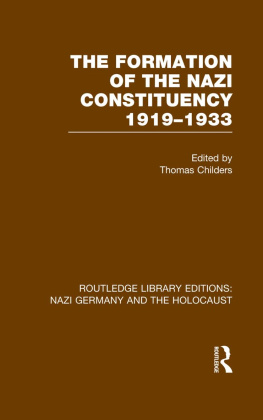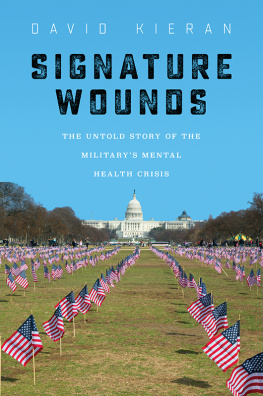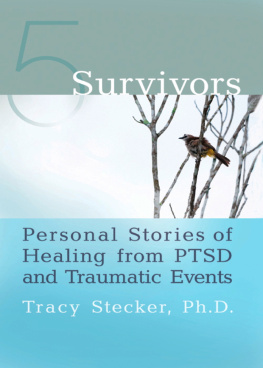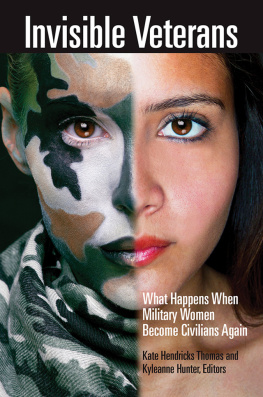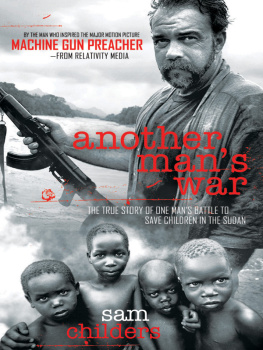Copyright 2009 Thomas Childers
ALL RIGHTS RESERVED
For information about permission to reproduce selections from this book, write to or to Permissions, Houghton Mifflin Harcourt Publishing Company, 3 Park Avenue, 19th Floor, New York, New York 10016.
www.hmhco.com
The Library of Congress has cataloged the print edition as follows:
Childers, Thomas, date.
Soldier from the war returning : the greatest generations troubled homecoming from World War II / Thomas Childers.
p. cm.
Includes bibliographical references and index.
ISBN 978-0-618-77368-8
1. World War, 19391945VeteransUnited States. 2. VeteransUnited StatesMental health. 3. VeteransUnited StatesSocial conditions20th century. 4. World War, 19391945Psychological aspects. 5. Post-traumatic stress disorder. 6. Gold, Michael. 7. Allen, Willis. 8. Childers, Tom. I. Title.
D 810. V 42 U 635 2009
940.53'1dc22 2008052952
e ISBN 978-0-547-41654-0
v4.0317
Photographs of Michael Gold and family, courtesy of Michael Gold. Photographs of Thomas Childers and family, courtesy of Thomas Childers. Photographs of Willis Allen and family, courtesy of Judy Allen Davis.
For Nicholas, Ava, James, and Timothy
In memory of their grandparents
Mildred and Tom Childers
&
In memory of Gary Allen, childhood friend,
who passed away far too soon
I think the American people needs to know what war is. They dont know. They really dont know. Only the ones thats lost sons, and they dont know what they went through with, they dont know all the suffering they put up with. Ill trythats the reasons Im putting this on here, in the hope that it will be a help to somebody.
J ESSE A. B EAZLEY , PFC., 38th Regiment, 2nd Infantry Division
Introduction
Must you have battle in your heart forever?
The bloody toil of combat?
H OMER, Odyssey
I N THE SMALL EAST Tennessee town where I grew up in the years after the Second World War, a young manof good family, my mother told mecould be seen most any day, summer or winter, from sunup to dusk, drifting down the dusty streets as if in a trance. He wore sneakers, unusual for an adult in those days, and, with his arms hanging limply at his sides and his pants hitched high above his waist, he seemed to glide over the tree-lined streets like a specter. At each telephone pole along his route, he slowed, then stopped and stood motionless before it. His face would tilt slightly upward, and he would study the small silver tag affixed to the pole, which seemed to have some special communication for him. Sometimes he raised his hand tentatively, touching the tar-stained surface of the pole gently with his fingertips, then he would move on to the next and the next, repeating the same silent ritual day after day, year after year.
Children often trailed along behind him, shadowing his progress through the downtown and adjoining neighborhoods, the more brazen among them sniggering and calling out after him in peals of childish derision. He was such a bright boy, my mother always remarked after encountering him on the street. Miss Eugenia Rodgers says he is the only one true genius she ever taught in thirty years at the high school. But, Mother invariably added, her voice dropping lower, he was never the same after the war. Many years later, I learned that he had been valedictorian of the local high school, class of 1937, and had volunteered for the Navy shortly after Pearl Harbor. He served somewhere in the Pacific, and when the war was over, he came home. But, as everyone immediately noticed, something was dreadfully wrong.
Some said that he had been abandoned, left for dead on a Pacific island, and when rescued many months later, he had been half-starved, delirious with fever, and deranged. Others maintained that he had served as a code breaker, working under intense and ceaseless pressure. Had he committed some terrible blunder, some calamitous deciphering error that had cost men their lives? No one seemed to know for certain, and many stories were in circulation, but for decades after the wars end, he haunted the streets and byways of the town, a prewar golden boy come home a ghost.
In the early 1970s, he could still be seen shuffling along the streets. He had by then become a permanent presence in the social topography of the town, an unsettling human artifact, for those who chose to remember, of a now distant war and its lingering, incalculable costs. I moved away at about this time and for years had little occasion to think of him, but the recollection of his sad peregrinations through the town has remained vivid in my memory. Recently, watching the many memorial services, monument dedications, and public tributes to what we now refer to as the Greatest Generation, I have found myself thinking of him once again.
Where, I wonder, does he fit into the now pervasive public view of the Second World War and its aftermath, a view that seems increasingly intent on sentimentalizing and sanitizing a conflict that killed fifty-five million people around the world and left millions more broken, either physically or emotionally? His was a tragic but, you may well say, extreme case, and this would certainly be true. And yet I have come to realize that my mothers remark, He was never the same after the war, was quite a common observation at the time, spoken in many contexts and about many different men and their families.
During the 1990s, popular interest in the Second World War surged to tidal-wave proportions, spurred by the cycle of fifty-yearnowsixty-yearanniversaries. Books, films, television specials, and speakers series on virtually every aspect of the war abounded. The airwaves bristled with interviews of aging veterans recounting their experiences on Guadalcanal or Iwo Jima, in Normandy or North Africa. Interest has hardly dwindled in the new century. In 2004 the long-delayed opening of the National World War II Memorial in Washington, D.C., threw a spotlight on the ordinary soldiers, sailors, and airmen who fought the war, and Hollywood joined in. Saving Private Ryan and The Thin Red Line in 1998 were followed by the miniseries Band of Brothers in 2001, the movie Flags of Our Fathers in 2006, and Ken Burnss PBS documentary The War in 2007, all winning large audiences and critical acclaim. Histories, memoirs, and novels about the war continue to cascade from publishing housesgenerals, admirals, soldiers from the ranks telling their stories, analyzing critical battles, dissecting air campaignsand oral history projects have sprouted in town after town across the country, recording for posterity the recollections of the World War II generation.
But despite all the attention lavished on the Second World War and the men and women who experienced it, a curious silence lingers over what for many was the last great battle of the war. That battle was not fought on the fields of Europe or on the jungle islands and coral atolls of the South Pacific, but on the main streets of American towns and in big-city neighborhoods, sometimes in highly public spaceshospitals and courtroomsbut more often in parlors, kitchens, and bedrooms, buried in the deepest personal privacy. As many veterans would quickly discover, the last daunting challenge of the war, for those fortunate enough to survive it, was coming home.
Sixteen million men and women served in the American armed forces during the Second World War, more than in all the other conflicts of the twentieth century combined, but what took place when these millions of GIs reappeared at wars end has been the source of precious little reflection or serious writing. For a time, the tortured emotional legacy of the Vietnam War generated tremendous public interest in the plight of many veterans, but in ways that seemed to suggest that any problems that arosepost-traumatic stress disorder (PTSD), alienation, substance abuse, and shattered personal relationshipswere somehow unique features of the Vietnam experience. Bad war, bad outcome, bad aftereffects. If veterans of the Second World War were invoked at all, it was to draw a striking contrast: habitus of American Legion and VFW posts, they had fought the good war and returned home to a grateful nation happy, healthy, and respected.
Next page

